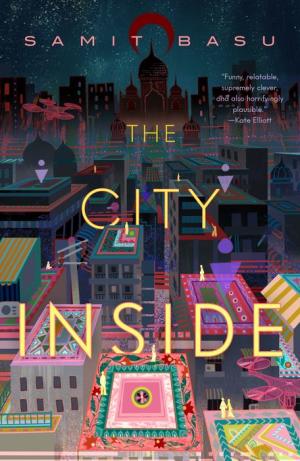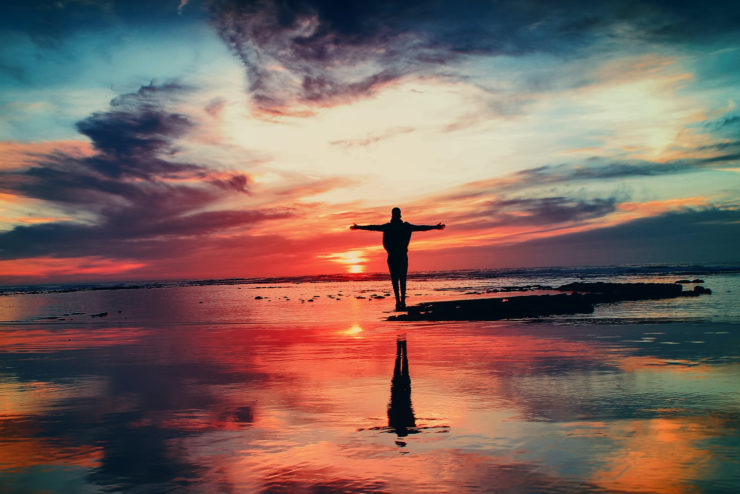You’re having trouble really fitting into your protagonist role. The world you’re in looks like it can’t be saved. Nobody’s declared you the Chosen One, and your attempts to self-declare seem a little off to the people around you, or even to yourself. Don’t worry, we’re here to help.
First of all, congratulations for experiencing a moment of self-doubt. The people who automatically see themselves as the one true centre of the universe, assign enemy/sidekick/lover/backstory/NPC roles to everyone else, and then set off to destroy something are usually the problem. If you’re not them, you’ve already made the world better.
Let’s deal with your sense of Unchosen-ness first. If what’s making you feel this way is something physical, or something about you that you didn’t choose for yourself, if it’s other people’s response to your identity, not your actions, then we’re sorry you’re going through that. We know it’s terrible, but it takes nothing away from your protagonist quotient. Are you feeling non-protagonisty because the people around you don’t see you, don’t treat you like a priority, don’t let you belong to anything? Also, have to ask, because the last decade has been a constant exercise in reexamining the reality I live in: when you receive the signals they send you, do they include responses to situations where the fault is yours, and there are things you’re doing that are hurting them too? Because if not, and your internal AITA checks turn out NTA, you might just need a different set of people around you. Or to be in a different place or life altogether. Save yourself before you even think about saving the world. It’s certainly worth any journey, finding your people. Hope you can, hope they’re lovely.
Sometimes your non-protagonist feelings exist because your moment hasn’t arrived yet. Maybe the magic school that you thought you wanted to go to as a child didn’t invite you because of its genetic selection biases, or it did, but its arbitrary owl-based mail delivery system failed because the owl couldn’t make it to your part of the world, or got eaten by your local kites or arrested by the police for being a spy, which happens in more countries than you suspect. Maybe the whitebeard mentor type who showed up to your house and tried to take over your life was a con artist or worse, and you missed the right teacher in traffic. Sometimes it’s just luck: the cupboards in your house don’t open to magical lands. You don’t have the right backstory: wrong place, wrong time, your parents weren’t demigods or superheroes or aliens or you weren’t arbitrarily gifted with space magic powers or mutant abilities or inherited billions and an accidental bat obsession. You don’t have the connections to arrange a security entourage for your journey, or a casual eagle flyby for your trip back. Happens.
Sometimes it’s just time, though, and your feelings would disappear if you had the ability to transform large periods of time, years even, into training montages where you learned the specific skills or life lessons or internal evolutions that would one day, prepare you for your match with your world-saving moment, earn you the climactic win, assuming that you didn’t lose your on the dreams of the past, but fought just to keep them alive, it’s the eye…
Let’s talk about the world. Who said it can’t be saved? Chances are they’re people who are essentially okay with things staying as they are. Any world can be saved, including the real one. Yes, I know, there are multiple-choice apocalypses heading our way that don’t even have the decency to arrange themselves in an episodic villain/Black Mirror dystopia structure and the only way to fix those, or even survive them, requires global cooperation, social change, political will, cultural evolution and economic rearrangement that humanity seems capable of only in fiction, theory, or other logic-based, vast assumption-making, designed narratives. But it’s possible, it has to be.
Don’t forget to do an AITA check on your world-saving plan as well. Does the world need saving? Does it want it? Did it specifically ask for it? Is your rushing in to save it an act of terror or invasion or colonisation or at least offensive tourism to the people inside it? Have they asked you, at any point, to please not save them? Because if any of these are true you should really find somewhere else to save. Please check that the good old days you might be trying to restore actually weren’t actually terrible for most people in them, if they were ever real at all.
Also, did you choose the right world? Our world’s an unequal place, and not all of us get to choose the stories we’re in. But even if our plotlines are being defined by other people, and we can’t break out of them and go on adventures, maybe there is a tiny bit of the world, no matter how small, how unimportant to anyone else, that we can save. It doesn’t matter what its influencer rank is, as long as we care about it.
So maybe ask yourself: What can you change? What are you angry about? What do you care about? What can you make a difference to? What are you willing to sacrifice?
Do you need to change yourself first? Do you lack the abilities, skills, privileges, material objects, insights, emotional capacity, health and empathy you need to survive, and make the lives of the people you care about better without harming other people?
What are the things you are trained to obey, respond to and ignore? What are you not seeing? Is the world what you think it is, or have you swallowed someone else’s vision of it? Whose interests are you really acting in? Are you building your sense of self-worth or success or value inside frameworks heavily biased towards people with privileges you don’t have? Who taught you your values? Do they still work?
Are you doing things it is possible to do by oneself, or if not, do you have allies? And if you do, are they the right ones? Are you going solo into a task that will require a community, or a team, or multiple efforts over multiple generations?
Or are you just overthinking/procrastinating/distracting yourself into inaction?
Let me choose this moment to talk about myself and a fictional world that needed a fair amount of saving, both by and from me. I spent a lot of time over the last few years constantly rewriting The City Inside, a novel that I’d thought would be a near-future cyberpunk thriller set about half a century in the future, in Delhi, about two young people privileged enough to think beyond day-to-day survival, and also brave enough to not embrace the comfort of looking away from all the terrible things happening in their immediate surroundings. They were supposed to be exactly the sort of protagonists you’d imagine on reading the last sentence. They’d give up their comfortable lives and be dashingly noncomformist, charmingly empathetic and just very good at staying a step ahead of dystopian authoritarian badfolk. Together they would find a way to not only start a revolution that would dismantle all kinds of oppressive structures (while doing interesting things with exciting invented technology,) but also probably tag themselves at every point on a decently constructed three-act journey, which would include romance, action setpieces and colourful South Asian imagery. The first time I threw away the outline I was vaguely pleased with myself. Less so each subsequent time.
Buy the Book


The City Inside
The problem was really that the more research I did and the more news I read and the more nuts the world around us got, the more vaguely exploitative it began to feel to claim that there was a tech/action/single protagonist-led way to save this part of the world from its hydra-headed array of problems. We’ve seen too many times how tech, however amazing, is used just as often as an instrument of exclusion, oppression and division as it is to make society safer, easier or better in any way. How power structures that have existed here for centuries have always found ways to reassert themselves and make the inequalities they feed on even worse. How regime change is often great, and hopefully what comes after isn’t worse. Saving the world needs you to know how, or at least be able to learn how, and that’s something that people who live in places where essential infrastructure and institutions are functional often don’t understand. The world around these characters was designed to prevent truth and clarity, to stalk and distract and threaten and gaslight everyone in it into submission, obedience and conformity even in their own homes. And it got clearer and clearer with each rewrite that even if my Chosen Ones chose themselves to save the world, there was absolutely no way they could do said saving by themselves: that it would take generations of entire communities working in multiple directions, overcoming their many differences, carrying innumerable scars and burdens without cracking, before any real change was visible.
So finding a way for the ones I’d chosen to save the world really became a different question: What was a world they could save? And what was a world only they could save? And the answers to those questions, and their journey to saving the slivers of world they could, lay in looking both around themselves and within, in deciding who they were in a society trying to push and shape them in multiple ways, in finding what they really wanted while being watched and judged by many hidden eyes, and then changing both themselves and their environment by just doing what they could, each according their abilities, each according to their privileges, to add their efforts to a resistance much larger than themselves, to help movements they were strangers to. So it really turned out that the world, the journey to saving it, and the selection of the people to make this journey all turned out to be ideas I reached through a lot of trial and error—the time and reality it was set in came closer to our own, the people transformed, along with the structure, to be right for the world the book needed to become.
All of which is to say: these are interesting times in our realities and our fictions, and both for you and the protagonists you might want to create, there are so many ways to Choose the Ones: some are traditional, some are indie, all are valid. And there are so many worlds that need to be saved, and somewhere in them you’re one of many protagonists who’ll be what they can, and do what they can, and be part of the change that saves it.
Samit Basu is an Indian novelist. He’s published several novels in a range of speculative genres, all critically acclaimed and bestselling in India, beginning with The Simoqin Prophecies (2003). The City Inside was shortlisted (as Chosen Spirits) for the JCB Prize, India’s biggest literary award. He also works as a director-screenwriter (Netflix, 2019), a comics writer, and a columnist. He lives in Delhi, Mumbai, and on the internet.










